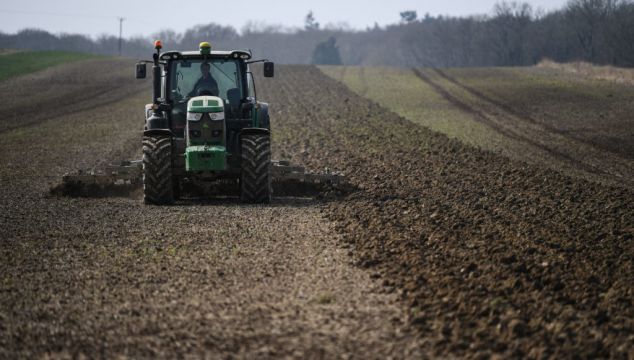The State’s nitrates regulation plan, which aims to protect waters from agricultural pollution, breaches environmental laws and should be quashed, the High Court has been told.
An Taisce’s case, which hopes to achieve a strike-down of the Nitrates Action Programme (NAP) currently in force, is fully contested by the State and opposed by the Irish Farmers’ Association and the Irish Creamery Milk Suppliers Association, which joined the action as interested parties.
An Taisce, a heritage preservation charity, also wants the High Court to make a reference to the Court of Justice of the European Union to determine the validity of the European Commission’s granting Ireland a derogation to the normal fertiliser limit.
It argues the NAP was “instrumental” to the granting of the derogation, which currently allows certain farms to exceed the 170kg nitrates per hectare limit by 80kg.
The derogation maximum is due to drop to 220kg per hectare next year on foot of the Commission’s review of agricultural run-offs’ contribution to Irish river pollution.
The EU’s Nitrates Directive requires member states to produce an NAP every four years, setting rules for farm management including on the application of slurry and chemical fertilisers to reduce their impact on water quality.
The hearing of An Taisce’s case, which is due to run for four days, began on Tuesday before Mr Justice Richard Humphreys in the High Court’s planning and environmental division.
James Devlin SC, instructed by FP Logue solicitor Eoin Brady, submitted that NAP measures aimed at mitigating potential negative effects on water quality are inadequate.
Appearing with John Kenny BL, Mr Devlin said some of the measures are based on phrases such as a “commitment to consider” or “consideration will be given to”. He said this indicates the Government is “just going to have a think about it; one cannot say it is going to happen”.
Water quality
A commitment to assessing the effectiveness of the NAP is “as it should be”, but it does not meet the requirement for being a mitigation measure, which needs to eliminate scientific doubt that the implementation of the programme could have damaging effects on water quality, he said.
Mr Devlin said Irish water quality is not going in the right direction and there are particular concerns about catchments in the south and south-east.
His client points to a report by the Environmental Protection Agency earlier this year, which found 47 per cent of the State’s rivers have unsatisfactory nitrate concentrations, while 38 per cent showed an increasing nitrate trend from 2013 to 2020.
An Taisce alleges the NAP was authorised off the back of an assessment determination that breached the 2011 Birds and Natural Habitats Regulations, as it did not ensure there was no “reasonable scientific doubt” about a lack of adverse significant effects on EU protected sites.
A breach of the Water Framework Directive and Strategic Environmental Assessment Directive occurred because the State did not ensure the NAP would not cause a deterioration of surface waters, the organisation claims.
Its case is against the Minister for Housing, Local Government and Heritage and the Minister for Agriculture, who together approved the NAP, as well as the Attorney General and Ireland.
The State parties deny all of the allegations, including that the NAP or regulations giving effect to it are invalid or contrary to law.
They say the High Court does not have the power to make a preliminary reference to the European court about the Commission’s decision to grant a derogation to Ireland. They also refute that there is any doubt about the validity of the decision.
The trustee of the Irish Farmers’ Association and trustees of the Irish Creamey Milk Suppliers Association were joined to the case as notice parties that can make submissions during the hearing.
The case continues on Wednesday.







